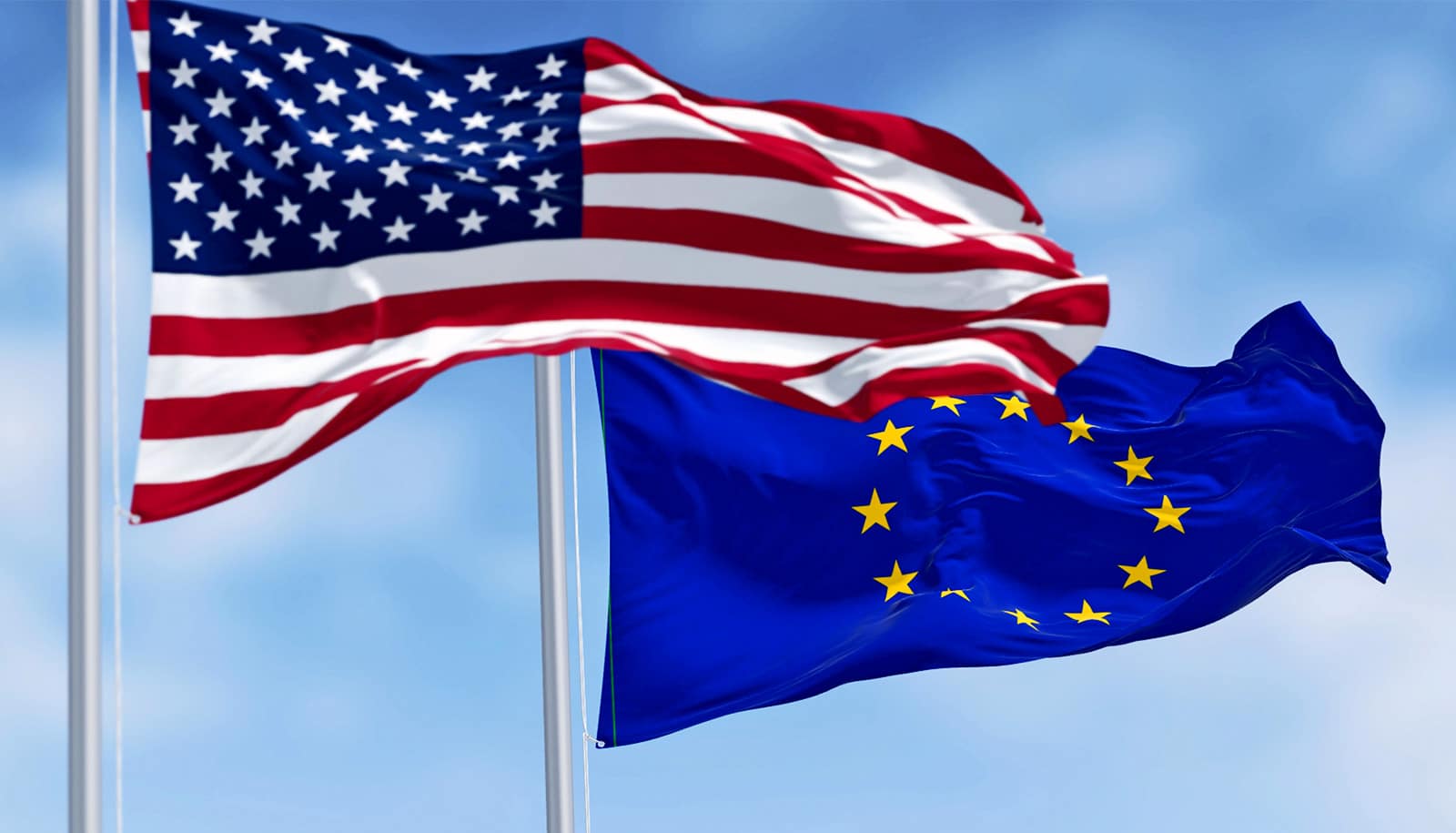American public opinion on nuclear weapons hasn’t changed much since 1945 and many Americans would support their use to kill millions of civilians if the United States found itself in a similar wartime situation, a new study suggests.
Researchers used a survey experiment to recreate the situation that the United States faced in 1945 in the Hiroshima nuclear bombing with a hypothetical American war with Iran today.
‘Nuclear taboo’
The results showed little support for the so-called “nuclear taboo” thesis, or that the principle of “noncombatant immunity”—civilian protection from such weapons—has become a deeply held norm in America. This month marks the 72nd anniversary of the atomic bomb used against Japan to help end World War II. Hiroshima was bombed Aug. 6 and Nagasaki was bombed on Aug. 9, 1945.
“…60 percent of Americans would approve of killing 2 million Iranian civilians to prevent an invasion of Iran that might kill 20,000 US soldiers.”
The findings suggest that the US public’s support for the principle of noncombatant immunity is “shallow and easily overcome by the pressures of war,” says Scott Sagan, a political science professor and senior fellow at Stanford University’s Center for International Security and Cooperation.
When considering the use of nuclear weapons, the majority of Americans prioritize protecting US troops and achieving American war aims, even when doing so would result in the deliberate killing of millions of foreign noncombatants, researchers say.
“The most shocking finding of our study is that 60 percent of Americans would approve of killing 2 million Iranian civilians to prevent an invasion of Iran that might kill 20,000 US soldiers.”
A number of variables—Republican Party identification, older age, and approval of the death penalty for convicted murderers—significantly increase support for using nuclear weapons against Iran.
In August 1945, 85 percent of the US public told pollsters that they approved of President Harry Truman’s decision to drop two atomic bombs on Hiroshima and Nagasaki, Sagan says.
Since then, US public approval of that decision has declined significantly. And 70 years after the end of World War II, a majority of Americans no longer approved of Truman’s decision. A 2015 poll found that only 46 percent of Americans still viewed the atomic bombing of Japan as “the right thing to do.”
But none of these polls ever put respondents in the situation the US faced in 1945: Drop the bomb and kill Japanese civilians or invade Japan, which would likely cost the lives of many US soldiers.
“We wondered what would happen today if Americans were faced with a similar tradeoff,” Sagan says. “Has the US public really changed? Or were previous polls misleading guides to real public attitudes about nuclear weapons use?”
A hypothetical scenario
Sagan’s findings from a survey experiment conducted in July 2015 involved a representative sample of the US public asked about a contemporary, hypothetical scenario designed to replicate the 1945 decision to drop a nuclear bomb on Hiroshima.
Researchers created a news story in which Iran attacked a US warship in the Persian Gulf, Congress declared war, and the president was presented with the option of sending US troops to march into Tehran, which would lead to many American military fatalities, or dropping a nuclear weapon on an Iranian city to try to end the war.
“Women are as hawkish as men and, in some scenarios, are even more willing to support the use of nuclear weapons.”
“Would the US public approve of the use of a nuclear weapon against a city in Iran in an attempt to end a war that the Iranian government had started in response to the imposition of US economic sanctions?” Sagan asked.
“This type of thought experiment obviously cannot re-create the depth of urgency and emotion that many Americans felt in 1945,” the authors write in a new paper that appears in International Security. “As such, it constitutes a conservative test of the public’s willingness to use nuclear weapons and target large numbers of noncombatants in a war.”
The findings demonstrate that, contrary to the nuclear taboo thesis, a clear majority of Americans would approve of using nuclear weapons first against the civilian population of a nonnuclear-armed adversary, even killing 2 million Iranian civilians, if they believed that such use would save the lives of 20,000 US soldiers.
70 years later, was the U.S. wrong to bomb Japan?
In addition, contrary to the principle of noncombatant immunity, an even larger percentage of Americans would approve of a conventional bombing attack designed to kill 100,000 Iranian civilians in the effort to intimidate Iran into surrendering.
The research also shows that women support nuclear weapons use and violations of noncombatant immunity no less (and in some cases, more) than men.
“Women are as hawkish as men and, in some scenarios, are even more willing to support the use of nuclear weapons,” Sagan says. “Most polls about war show that women are more dovish than men, but this is because they are more protective of their loved ones. If they are forced to choose between killing US soldiers and killing foreign civilians, those same instincts appear to lead to more support for dropping the bomb.”
The experiment also provides insights into how a belief in retribution and an ability to assign blame retrospectively to foreign civilians allows people to rationalize the killing of foreign noncombatants, Sagan says.
“Belief in the value of retribution is strongly related to support for using nuclear weapons, and a large majority of those who favor the use of nuclear weapons against Iran stated that the Iranian people bore some of the responsibility for that attack because they had not overthrown their government,” the authors write.
The conclusions are stark and disturbing, Sagan says.
“These findings highlight the limited extent to which the US public has accepted the principles of just war doctrine and suggest that public opinion is unlikely to be a serious constraint on any president contemplating the use of nuclear weapons in the crucible of war.”
Did this 1945 nuclear test trigger a new age?
Benjamin Valentino, a Dartmouth College government professor, is a coauthor of the paper.
Source: Stanford University



